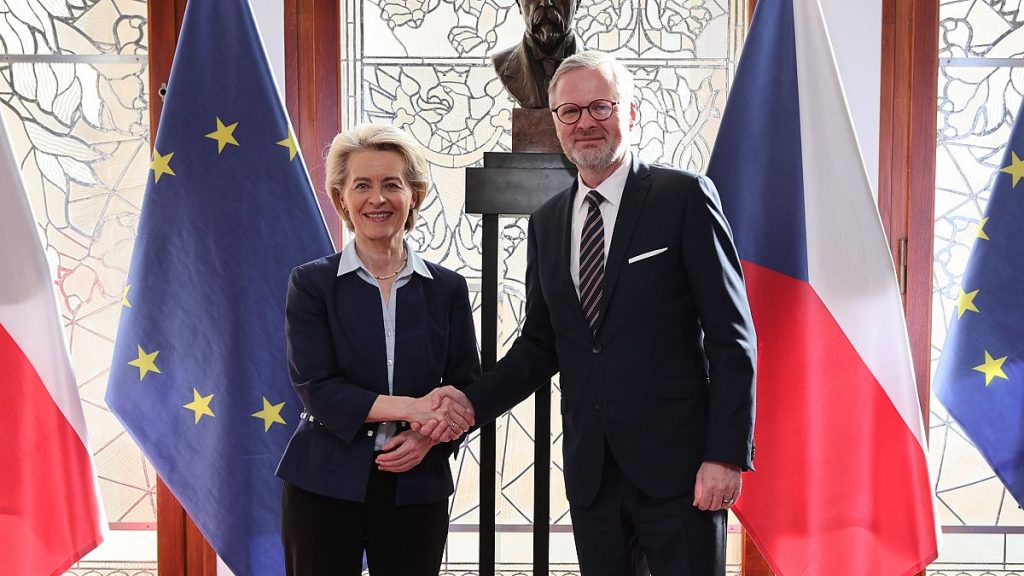European Commission President Ursula von der Leyen is facing a challenging task of balancing too many male candidates seeking prestigious economic roles within the Commission. With 26 positions to fill, she needs to ensure representation from each EU member state while also maintaining political and gender balance. This task is complicated by the fact that many countries are vying for the same key economic positions, making the selection process highly competitive. Von der Leyen’s efforts to achieve gender equality within the Commission have been hindered by the predominance of male candidates put forward by member states.
The upcoming meetings with Czech Prime Minister Petr Fiala and Romanian Prime Minister Marcel Ciolacu highlight the challenges that von der Leyen faces in selecting candidates for key economic roles. Fiala is pushing for Czechia to secure a prominent economic position, with Jozef Síkela being proposed for a role related to energy, industry, trade, or antitrust. However, other member states are also vying for these coveted positions, leading to intense competition. In addition, von der Leyen’s efforts to ensure gender equality within the Commission have been met with resistance from member states that have predominantly nominated male candidates.
Von der Leyen’s commitment to achieving gender balance within the Commission has been challenged by the reluctance of member states to nominate female candidates for key roles. Despite her request for governments to propose both male and female candidates, most nominations have been men. While von der Leyen can offer incentives to governments to nominate female candidates, such as promising better portfolios, member states are hesitant to relinquish control over the selection process. The pressure to appoint more women to key roles may lead von der Leyen to make difficult decisions, such as replacing male candidates with female alternatives.
The selection process for key economic roles within the Commission is highly competitive, with member states and political groups vying for prestigious positions. Von der Leyen’s challenge lies in balancing the interests of different countries while ensuring a diverse and gender-balanced team. The upcoming meetings with Czech and Romanian leaders will be crucial in determining the composition of the Commission’s senior staff. Von der Leyen’s efforts to promote gender equality within the Commission are met with challenges, but she remains committed to achieving a balanced and representative team.


